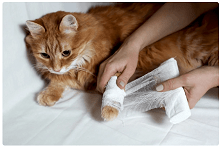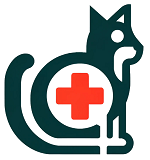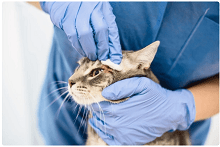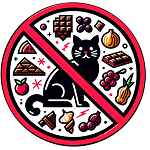First Aid for Cats: Important Emergency Numbers and Contacts
To be prepared for emergencies, it's good to familiarize yourself with common emergency situations beforehand.
As a cat caretaker, I have the responsibility to react quickly and safely in emergencies, and I have the appropriate training to do so.
I would like to share this knowledge in a clear and concise manner.
First Aid Situations


- 1 Scratches and bites: Clean the wound with a sterile solution and cover it.
- 2 Larger wounds: Must be treated by a veterinarian as soon as possible.
- Clean the wound
- Remove debris (fibers, hair, wood, etc.)
- If necessary, rinse with running water
- Disinfect
- If available, apply wound gel
- Place a wound dressing and secure with a bandage
- 3 Poisoning: Keep the packaging of the substance ready and call the veterinarian immediately.
- 4 Breathing difficulties: Keep the cat calm and transport it to the veterinarian immediately.
- 5 Shock symptoms: Keep the cat warm and calm and seek medical help immediately.
- 6 Torn claw: If the claw is torn off at the claw bone, the entire claw should be removed by a veterinarian to prevent infection.


Important Emergency Numbers and Contacts
- 1 Veterinary practice: Save the phone number and address of your veterinarian.
- 2 Zurich Animal Hospital: Emergency number for small animals 044 635 81 12
- 3 Poison Control Center: Toxicological Information Center 145

Toxic Foods for Cats
- Chocolate: Contains theobromine, which is toxic to cats.
- Onions and garlic: Can cause anemia.
- Raw meat and fish: Risk of salmonella and E. coli.
- Grapes and raisins: Can cause kidney failure.
- Caffeine: Leads to heart arrhythmias and hyperactivity.
- Alcohol: Even small amounts can be life-threatening.
- Xylitol: Found in artificial foods, peanut butter, can cause liver failure and hypoglycemia.
- Dairy products: Many cats are lactose intolerant (causing stomach cramps, vomiting).